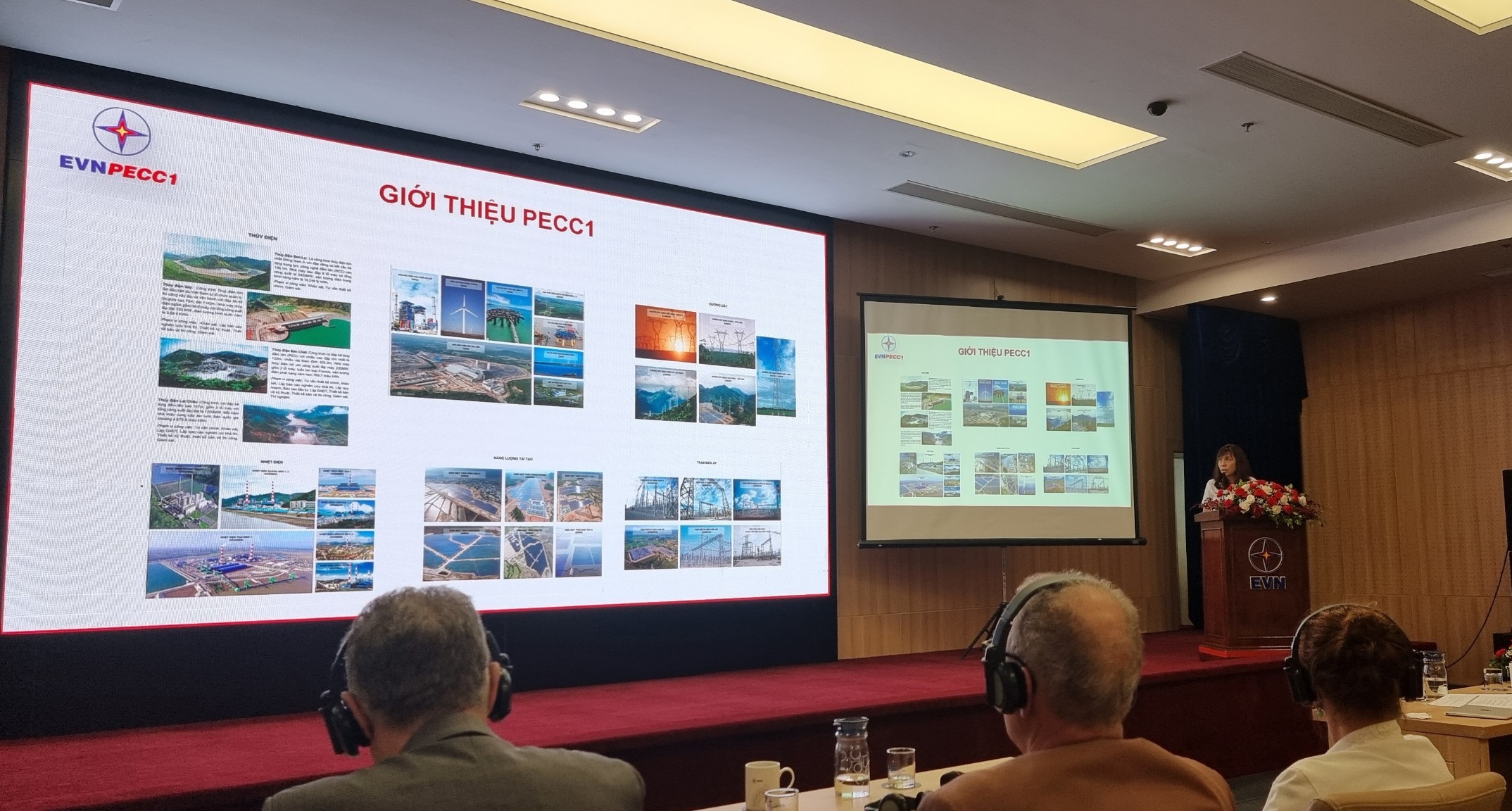
Delegates at the Workshop
In order to support EVN to have more information related to the development of offshore wind power projects and to connect renewable energy power sources, towards green energy transition in Vietnam, the workshop was organized to share international experience, introduce general and technical aspects related to grid connection, operational management and technical aspects of offshore wind projects in Vietnam.
Offshore wind power is considered a breakthrough solution to ensure national energy security, reduce dependence on imported fuel sources, and reduce emissions of pollutants and greenhouse gases. With the goal of putting 7 GW of offshore wind power into operation by 2030, Vietnam needs to have an active preparation process with appropriate policies to shorten the implementation time. Though the Energy Support Program, international experts were invited by GIZ and VEPG to share their experiences with EVN in this field.

Ms. Cao Thu Yen, EVNPECC1’s expert presented a report on offshore wind power study in the Northern region.
At the Workshop, Ms. Cao Thu Yen, EVNPECC1’s expert had a presentation on offshore wind power study in the Northern region with the following contents: Wind potential assessment; Exclusion area identification on environment, socio-economics; Identification of potential wind power sites; Connection solutions to the national power grid; Site selection for Offshore wind investment
Offshore wind power development is closely related to marine spatial planning. With the goal of sustainable development of the marine economy, environmental protection, ecosystem, and biodiversity conservation, national defense, security, and foreign affairs assurance, and effective international cooperation, the studied areas are classified into exploited prohibition areas, conditional exploitation areas, areas encouraged for marine economic sectors development, areas that need special protection for national defense, security, environmental protection, ecosystem conservation, and planned study area. Such delimitation at the planning will identify potential marine areas and suitable zoning for offshore wind power development.
In addition, large-scale offshore wind power development in the Gulf of Tonkin requires proper preparation for landing connection and onshore transmission system. At the same time, there should be a mechanism to encourage the application of the development of distributed renewable energy sources on the mainland for specific regions. Zoning criteria are based on the urgency of the demand, the potential of the power source or the difficulty of the power transmission. EVNPECC1 is an experienced unit advising EVN, provinces as well as non-EVN investors in providing suitable solutions for connection and capacity release.

Mr. Le Quang Huy - EVNPECC1’s engineer (leftmost) and Mr. Nguyen Tai Anh – EVN’s Vice President at the panel discussion moderated by Ms. Chiara Odetta Rogate - Senior Energy Expert, World Bank.
The workshop also listened to the lively discussion on topics such as: Vietnam's offshore wind power development plan, challenges and opportunities in offshore wind power development, and experiences of international experts on grid connection, hybrid and meshed offshore grid, experience in operational management, planning and development of offshore wind power projects.